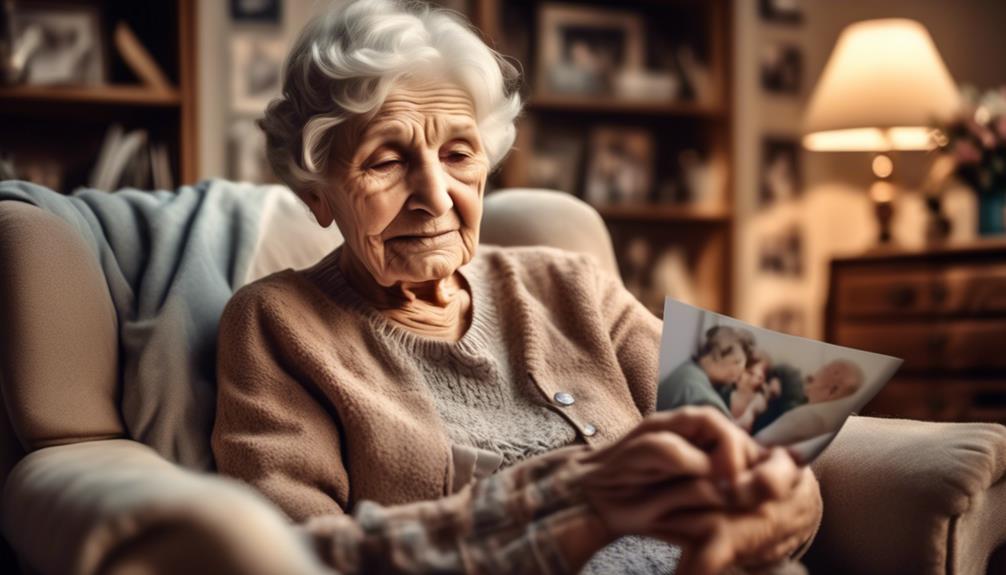As caregivers facing a challenging journey without family support, we often find ourselves at a crossroads, unsure of which direction to take. The burden of responsibility can feel overwhelming, but there are ways to ease this load and seek assistance.
By exploring the emotional toll, practical strategies, external support avenues, and self-care practices discussed in this piece, we can equip ourselves with the tools needed to navigate this journey with resilience and strength.
Key Takeaways
- Solo caregivers face emotional stress and isolation without family support.
- Building a support network and prioritizing self-care are crucial for emotional well-being.
- Seek community resources and online support for managing caregiver stress effectively.
- Consulting healthcare professionals and utilizing external resources are vital for solitary caregivers.
Challenges of Solo Caregiving
Navigating the challenges of solo caregiving can be a daunting journey, particularly for those without the crucial support of family members. Solo caregivers often face overwhelming caregiving responsibilities without the assistance that family support can provide. The absence of family backing can lead to feelings of isolation and abandonment, making the caregiving journey even more challenging. Geographical limitations further compound these difficulties, as solo caregivers may not have family members nearby to offer assistance or respite.
Fortunately, modern technology offers a lifeline for solo caregivers, allowing them to stay connected with family members even from a distance. Video calls, messaging apps, and online platforms can help bridge the gap and provide emotional support. Despite these technological advancements, the emotional toll of caregiving alone remains significant. The lack of family support intensifies this burden, highlighting the unique struggles faced by solo caregivers. It's crucial for solo caregivers to seek out support networks and resources to help alleviate some of the challenges they encounter.
Emotional Toll of Caregiving Alone

Experiencing the emotional toll of caregiving alone can significantly impact our mental well-being and overall quality of life. Being a lone caregiver comes with its unique set of challenges, particularly in terms of emotional stress and feelings of isolation. The lack of family support can exacerbate these difficulties, leading to a heightened emotional burden that can weigh heavily on us. The emotional toll of caregiving alone is undeniable, affecting not only our day-to-day lives but also our long-term mental well-being.
To navigate the emotional challenges of caregiving alone effectively, it's essential to consider the following:
- Recognize Your Emotions: Acknowledge and validate the range of emotions you may be experiencing.
- Self-Care Practices: Prioritize self-care activities that help maintain emotional balance.
- Build a Support Network: Seek external support from friends, support groups, or professional counselors.
- Set Boundaries: Establish boundaries to protect your emotional well-being while caregiving alone.
Practical Strategies for Solitary Caregivers
Feeling overwhelmed by the emotional challenges of caregiving alone, practical strategies can provide essential support and guidance for solitary caregivers. Managing caregiver stress is crucial, and seeking community resources can lighten the load.
Utilizing support groups can offer a sense of belonging and valuable information to help navigate the caregiving journey. Online resources can also provide tips and connections for those facing this unique challenge.
Establishing clear communication channels within the family can help in delegating tasks and sharing responsibilities, reducing the burden on solitary caregivers. Additionally, fostering forgiveness within family dynamics is key to maintaining harmony and reducing caregiver burnout.
Seeking Support Outside the Family

Support from external resources is crucial for lone caregivers to effectively navigate the challenges of caregiving without family assistance. When seeking support outside the family, caregivers can benefit from the following:
- Consulting with Healthcare Professionals: Engaging with doctors or the care recipient's physicians can provide valuable guidance on available resources beyond family support.
- Utilizing Online Resources and Support Groups: Online platforms and support groups offer information and local connections, serving as a vital source of support for caregivers.
- Exploring Local Care Centers and Specialist Groups: Organizations like the Alzheimer's Association, MS Society, Parkinson's Association, and Stroke Association provide assistance and resources for caregivers without family help.
- Accessing Available Resources: It's essential for lone caregivers to proactively seek help beyond their immediate family circle to alleviate the burden of caregiving responsibilities. By tapping into these resources, caregivers can find the support needed to navigate their caregiving journey successfully.
Self-Care Tips for Independent Caregivers
As independent caregivers navigate their roles without the support of family members, prioritizing self-care becomes paramount to prevent burnout and maintain overall well-being. Taking on caregiving responsibilities independently can be overwhelming, but carving out time for self-care activities is essential for sustaining your well-being.
Engaging in hobbies, setting aside personal time, and ensuring adequate rest are crucial steps to prevent caregiver fatigue. It's vital to recognize the signs of burnout and address them promptly by seeking support from external resources and community organizations.
Prioritizing self-care, such as regular exercise, moments of relaxation, and fostering social connections, is key for independent caregivers to navigate their duties effectively. Remember, by taking care of yourself, you can better care for others. Don't hesitate to reach out for help and make self-care a non-negotiable part of your caregiving routine.
Frequently Asked Questions
What Caregivers Should Not Do?
We shouldn't neglect our own well-being and health while solely focusing on caregiving duties. Isolating ourselves and refusing external help can lead to increased stress and burnout.
Seeking respite care or assistance is crucial to prevent caregiver exhaustion and maintain quality care. Setting boundaries and asking for support is essential to prevent emotional and physical strain.
It's important not to assume all responsibilities alone without exploring available community resources and support networks.
What Kind of Support Is Most Necessary for the Caregiver?
We believe that emotional support is crucial for caregivers facing challenges without family. Accessing practical resources like local care centers and organizations such as the Alzheimer's Association can provide essential assistance.
Connecting with online support groups and utilizing virtual consultations offer valuable guidance. Seeking help beyond family can alleviate the burden.
Establishing a support network of friends, community resources, and caregiver support groups is vital for lone caregivers.
What Is the Most Difficult Thing in a Caregiver Job?
Providing constant care without family support can be emotionally draining. We face overwhelming responsibilities and challenges when managing our loved one's care alone. It's tough balancing caregiving tasks, personal life, and self-care without family help.
This situation can lead to isolation, burnout, and feelings of abandonment for us caregivers going it alone. Finding time for ourselves becomes a struggle, leading to increased stress and exhaustion.
When Caregiving Becomes Too Much?
When caregiving becomes too much, we may feel overwhelmed, exhausted, and stretched to our limits. It's crucial to recognize these signs and seek help.
Ignoring our own well-being can lead to burnout and impact our ability to provide quality care. Remember, it's okay to ask for assistance and take breaks.
Prioritizing self-care isn't selfish but necessary for sustaining our caregiving role effectively.
Conclusion
In the vast ocean of caregiving, navigating solo without family support can feel like sailing a ship in stormy waters. But with the right tools and resources, lone caregivers can find their way to calmer seas.
Remember, you aren't alone in this journey. Seek out the lighthouses of support, prioritize self-care like a sturdy anchor, and continue to chart a course towards smoother sailing ahead.









